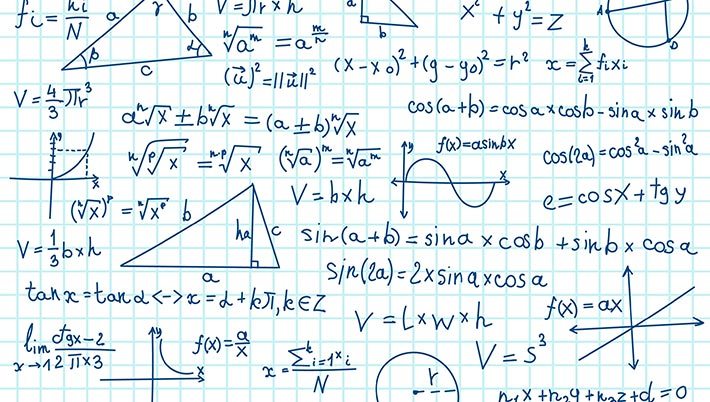Casino games are a fascinating combination of chance and risk. These games draw players into a world where luck and skill intersect. However, behind the glitz and glamour of real money gaming entertainment lies a complex web of mathematical principles that govern the outcomes of these games.
Before you throw your next pair of dice, draw cards from the deck, spin the reels of the slot machine or submit your casino bonus codes, check out some of the mathematical aspects that are the foundation of some of the most popular casino games. Learn more about the probabilities, strategies, and statistical intricacies that shape the gaming experience.
The information might surprise you and you may even find yourself making different gaming decisions based on this data.
Probability and Randomness
The concept of probability and randomness is at the heart of every casino game, regardless of whether it involves a roll of the dice, a shuffle of the cards of a spin of the roulette wheel. All of these actions are governed by the laws of probability so both casino operators and players need to understand the likelihood of various outcomes in order to keep the games moving.
A game’s “probability” expresses the percentage of likelihood of an event occurring in a gambling context. The casino calculates the probability of winning in any set of circumstances. From that, the casino figures out how much they can pay for each win while they still make a profit. Players in games like blackjack and poker – where results are determined partially by randomness and partially by probability – can also calculate the percentage of achieving a win and then move forward accordingly.
Card Counting
Games in which the outcomes are not completely random, like blackjack and poker, offer the player the chance to assess the average value of the next card out of a deck based on cards that have already come out.
This is known as “card-counting” where the player uses his/her knowledge of cards already played to determine the odds of obtaining the card(s) that are needed to build a winning hand. The player keeps track of the ratio of high to low-value cards that remain in the deck and then adjusts the wagers based on the perceived advantage. In this way, a player can swing the odds in their favor.
House Edge
The concept of “house edge” is one of the key mathematical concepts in casino gaming. House Edge represents the statistical advantage that the casino holds over the player. For example, in European roulette, the presence of the green zero gives the house a slight edge because it’s one of 37 possible outcomes but it doesn’t pay out if the ball lands in the zero pocket.
In American roulette, the double zero pocket increases that house edge x2, which is why most casinos try to steer players to American roulette tables, or simply eliminate European roulette tables entirely. Similarly, in card games like blackjack, the rules and the number of decks in play influence the house edge.
In short, the house edge is the average gross profit that the casino expects to make from each game. So if you are playing with the goal of achieving winning payouts, choose a game with a lower house edge (higher Return to Player) average.
Expected Value
The concept of expected value (EV) is central to decision-making in casino games. It is a measure of the average outcome when an event is repeated many times. Players can use expected value to make informed decisions about whether to hit or stand in blackjack, raise or fold in poker, bet on an outside or an inside bet in roulette, etc. Understanding EV is crucial for maximizing long-term success in games of chance.
The Gambler's Fallacy
Mathematics does, indeed, play a significant role in casino games but many players count on “Gambler's Fallacy” – a belief that past outcomes influence future results in a game of chance. They put their faith in “strategies” that, they are told, are mathematically designed to increase wins and reduce losses. These include
- the Martingale strategy where gamers are told to double up on losing bets and reduce winning bets by half so that the player improves his/her odds of breaking even. This type of loss-averse mentality increases the chances that the player will experience quick and significant losses.
- the D’Alembert System is a negative progression that can be applied to any even chance bet (i.e. red/black on the roulette wheel, a hand at the blackjack table, pass/don’t pass on the craps table or baccarat’s player bet. With the D’Alembert System you decrease your bet amount after a win and increase the size of your bet after you lose. The idea is to rack up small wins while chasing down previous losses.
- the Fibonacci System is a negative progression betting system. If you’re following the Fibonacci System you increase your stakes following a losing wager based on the theory that you are likely to have higher stakes on winning wagers than you are on losing wagers.
Mathematically speaking, all of these systems are flawed because, regardless of whether it's the spin of a roulette wheel, the spin of a slots reel or the flip of a coin, every event is independent and is unaffected by prior occurrences.
All casino games are based on intricate mathematical principles. From probability and house edge to expected value and strategic techniques, these mathematical aspects shape the gaming experience for both players and casino operators. While luck remains a central element, a deeper understanding of the underlying mathematics empowers players to make informed decisions and enhances their enjoyment of these games of chance.

